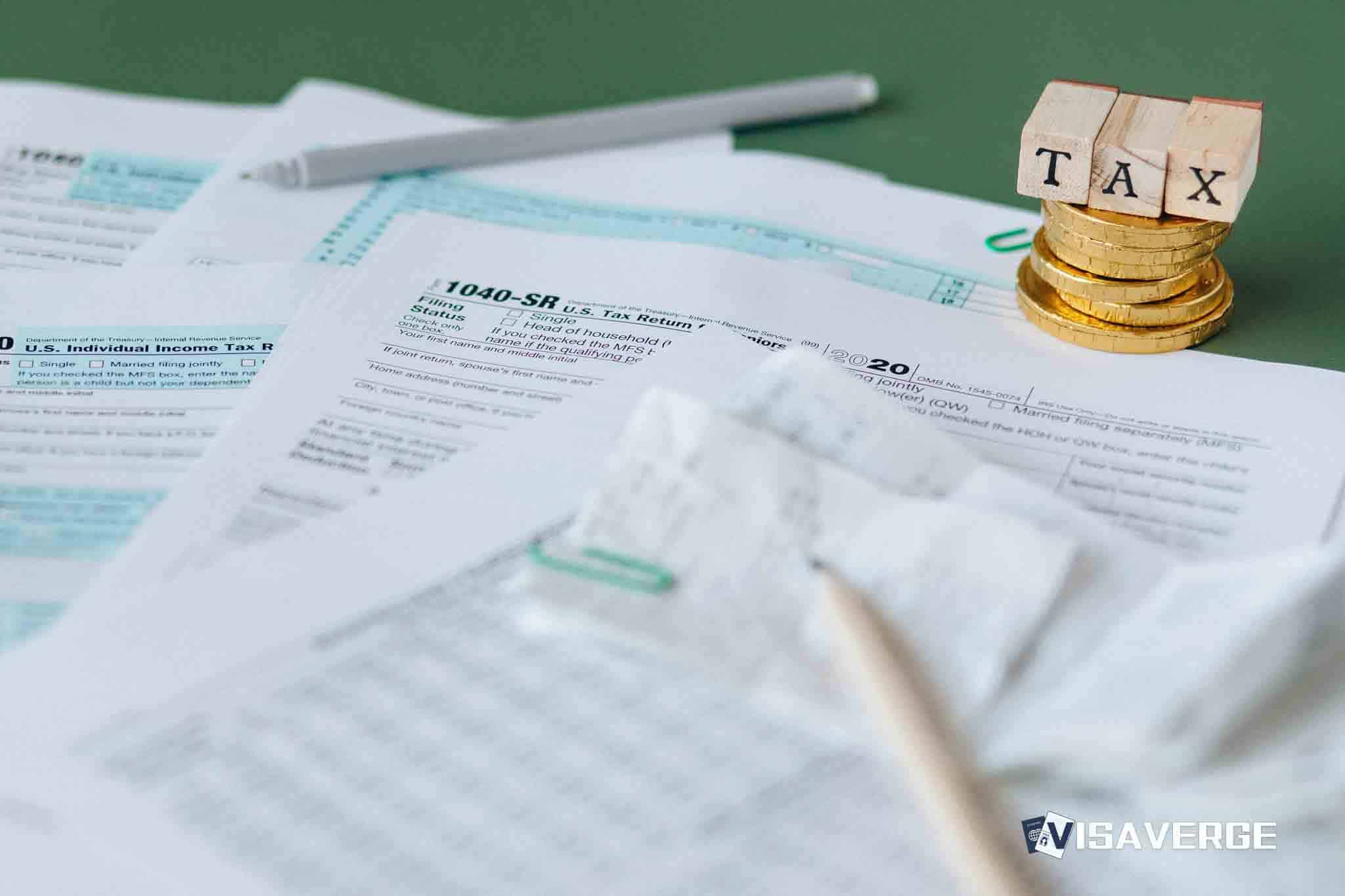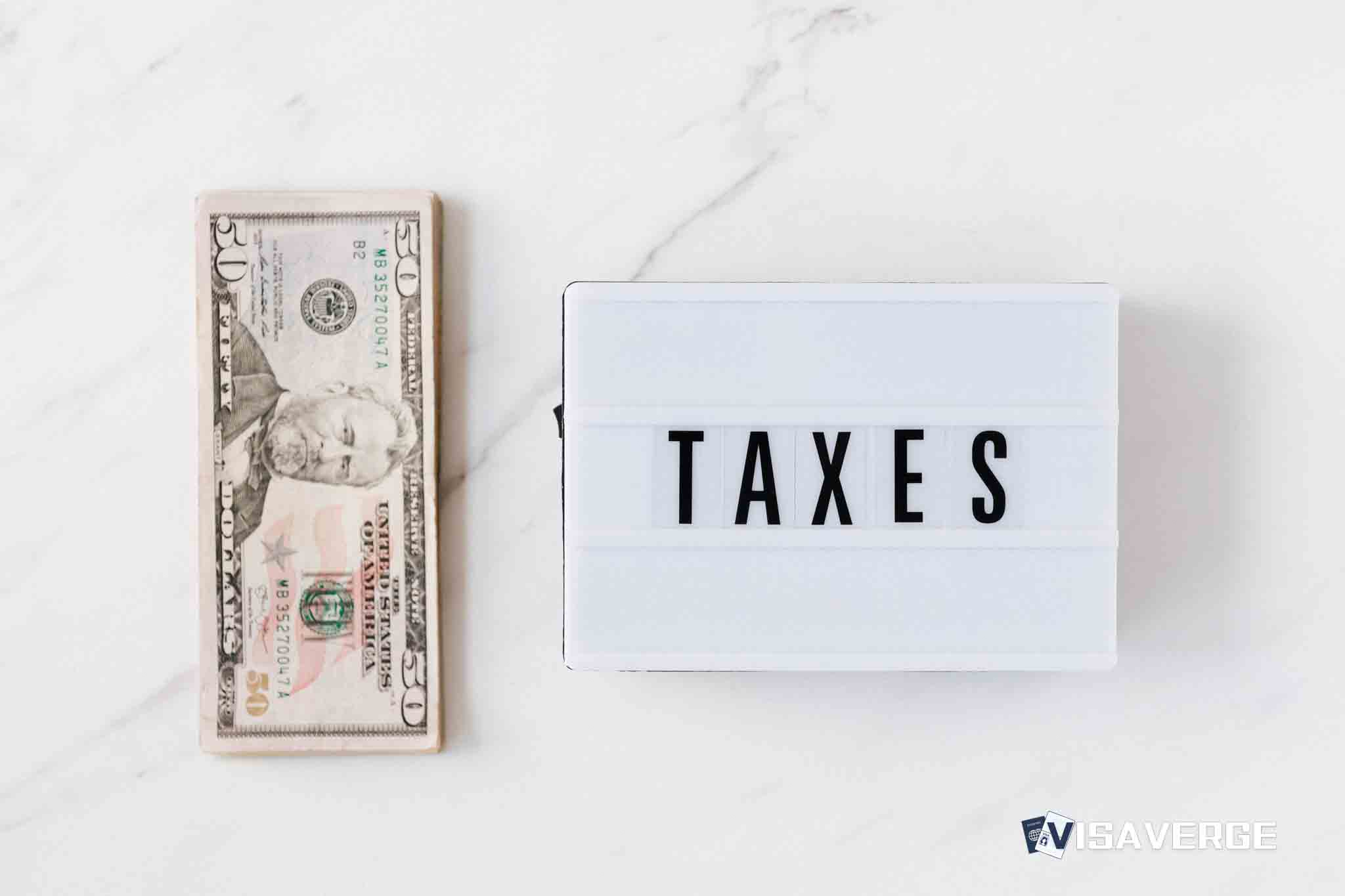Navigating the Accuracy-Related Penalties Under IRC Section 6662
When it comes to filing taxes, precision is key. Missing the mark can lead to significant consequences, including accuracy-related penalties as stipulated under Internal Revenue Code (IRC) Section 6662. These penalties are imposed on taxpayers for underpayments that stem from various reasons such as negligence, disregard of rules or regulations, and substantial understatement of income tax.
Understanding Underpayment and Accuracy-Related Penalties
So what exactly constitutes an underpayment? An underpayment occurs when the amount of tax shown on your return is less than the amount that is actually owed for the year. If an underpayment is attributed to any of the behavior outlined in IRC § 6662, a penalty is applied.
The accuracy-related penalty is substantial, set at 20% of the portion of the underpaid tax that is attributable to the accuracy-related issue. This penalty serves as a caution to taxpayers to adhere strictly to tax laws and exercise due diligence when filing their returns.
Common Triggers for Accuracy-Related Penalties
There are several infractions that can trigger these penalties:
- Negligence or Disregard of Rules or Regulations: This includes any careless, reckless, or intentional disregard for the internal revenue laws.
- Substantial Understatement of Income Tax: An understatement is considered “substantial” if it exceeds the greater of 10% of the tax required to be shown on the return for the taxable year, or $5,000.
Additionally, accuracy-related penalties may also apply in the case of a substantial valuation misstatement, a substantial overstatement of pension liabilities, or a substantial estate or gift valuation understatement.
Exceptions to the Penalty
It’s important to note that the law does provide exceptions where the taxpayer may not be held liable for these penalties. For instance, if you can show that there was a reasonable cause for the underpayment and that you acted in good faith, the penalty might not be levated. This often involves demonstrating that you exercised due diligence and that the underpayment was not due to willful neglect.
Steps to Avoid Penalties
To avoid falling into the trap of accuracy-related penalties, here are some steps to take:
- Keep Detailed Records: Maintain comprehensive records to support your income, deductions, and credits.
- Understand Tax Laws: Stay informed about the tax laws that apply to you. Ignorance of the law is not considered a defense.
- Seek Professional Advice: If there are complex issues on your return, consider consulting with a tax professional who can provide guidance.
Responding to a Penalty Notice
If the IRS imposes an accuracy-related penalty, you’d typically be notified via mail. Upon receiving a notice, it’s important to:
- Review the notice carefully and understand why the penalty was assessed.
- Assess whether the notice is correct and whether you might qualify for an exception due to reasonable cause and good faith effort.
- Respond promptly, following the instructions given in the notice. Provide additional information if it supports your case.
In some cases, you may need to file an appeal if you disagree with the penalty. The official IRS website provides resources and guidelines on how to proceed with an appeal.
Conclusion
No taxpayer wants to face penalties, especially when they can be avoided with careful planning and by understanding IRS expectations. Being aware of what triggers accuracy-related penalties under IRC § 6662 can help in compliance and reduce the likelihood of facing these penalties.
However, if you find yourself facing such penalties, don’t hesitate to seek help. You might also want to regularly consult with a tax professional to stay updated on tax laws and ensure that your tax filings remain accurate and penalty-free.
Still Got Questions? Read Below to Know More:
How long do I have to respond to an IRS penalty notice, and can I get help from a tax advisor to reply to it correctly
When you receive an IRS penalty notice, it’s important to pay attention to the details within the notice itself. Typically, the IRS will give you a deadline to respond, which is usually mentioned in the notice. Generally, you have:
- 30 days to respond to most IRS notices if you wish to contest the penalty or need to correct any information.
- 60 days if the notice is proposing a change to your tax return or if you’re receiving a notice about a penalty on that return.
Failing to respond within this timeframe can result in additional penalties, interest, or enforcement actions, such as liens or levies.
You certainly can and should seek assistance from a tax advisor if you’re unsure how to respond to an IRS penalty notice. A tax professional, such as a Certified Public Accountant (CPA), Enrolled Agent (EA), or a tax attorney, can help ensure that your response is correct and submitted on time. They can also provide advice on whether you qualify for penalty relief and assist with requesting it if applicable. Here are steps for finding authorized tax professionals:
- Use the IRS Directory of Federal Tax Return Preparers: Find a Tax Preparer.
- Check for credentials and qualifications, as well as good standing with the relevant state boards or the IRS for EAs.
- Consider the Preparer Tax Identification Number (PTIN) directory, ensuring the advisor is authorized to prepare federal tax returns.
Remember that even though a tax advisor can help you with your response, it is ultimately your responsibility to ensure timely and accurate compliance with the notice. Be proactive in seeking assistance as soon as you receive a notice for the best outcome. For more information on understanding your IRS notice or letter, visit the official IRS page: Understanding your IRS Notice or Letter.
I received an IRS notice for underpayment due to an honest calculation error. What evidence do I need to show reasonable cause and good faith
If you’ve received a notice from the IRS for underpayment due to a calculation error, and you believe the error was made in good faith and due to reasonable cause, you’ll want to gather evidence that supports your claim. The IRS does take into account honest mistakes and won’t penalize taxpayers who can show their error was due to a reasonable mistake and not willful neglect. Here’s what you can do:
- Document the Error:
- Show how the error occurred. For example, if it was a mathematical mistake, provide your original calculations.
- If you relied on incorrect tax software results or made an error while using tax tables, provide evidence such as screenshots, software version information, or relevant user guides that may have contributed to the mistake.
- Provide Your Tax History:
- Demonstrate a history of compliance with tax laws by showcasing your previous timely and accurate tax filings. This can help establish that the underpayment was an anomaly and not part of a pattern.
- Explain the Circumstances:
- Offer a detailed explanation outlining why the mistake was made. Was there a complex financial situation, or misleading or unclear tax guidance that contributed to the error?
- If a life event caused you to make the error, like a family emergency or natural disaster, provide documents supporting those claims.
According to the IRS, “The term ‘reasonable cause’ is based on all the facts and circumstances in your situation. We will consider any reason which establishes that you used all ordinary business care and prudence to meet your tax obligations but were nevertheless unable to do so.”
For further clarification and to ensure you’re taking the appropriate steps, consider referring to the IRS’s guidance on penalty relief due to reasonable cause and good faith, here: IRS Penalty Relief.
Remember, it’s important to respond to the IRS notice promptly and include all relevant evidence when you plead your case. If needed, consulting a tax professional can be beneficial to guide you through the process and to help present your case to the IRS effectively.
My side hustle made more money than I expected last year, and I forgot to report some of it on my taxes. Will the IRS consider this negligence, and how can I fix it
If you forgot to report some of your side hustle income on your taxes, the IRS may indeed consider it negligence, especially if it seems like a deliberate attempt to underreport your earnings. However, if the omission was an honest mistake, you might simply be subject to some penalties and interest on the underpaid tax. The IRS states, “If you made a mistake on your tax return, you need to correct it with the IRS.” Here’s how you can address the oversight:
- File an amended tax return using Form 1040-X, Amended U.S. Individual Income Tax Return.
- Report the additional income you received and calculate the additional tax owed, if any.
- Pay any additional tax, interest, and penalties as soon as possible to limit interest and penalty charges.
The sooner you correct the error, the better, as this demonstrates a good-faith effort to comply with tax laws. In most cases, to amend a return, you must do so within three years of the original filing date. Refer to the IRS’s official guidelines on amended returns for detailed instructions.
If you find the process confusing, it’s always best to consult with a tax professional who can provide personalized assistance and help you navigate the specificities of your situation. Remember, making a genuine effort to correct your tax return can help mitigate potential penalties for tax negligence. For detailed information on the types of penalties that might apply and the IRS’s definition of negligence, visit the Penalties at a Glance page on the IRS website.
Can the IRS waive the penalty if I prove that I made a mistake on my return because I misunderstood the new tax law changes
Yes, the IRS may waive penalties for taxpayers who make an honest mistake on their return due to misunderstanding the new tax law changes. This is referred to as “reasonable cause” for abatement of penalties. When deciding whether to waive penalties, the IRS considers various factors including your past tax history, the type and complexity of the tax law change, and whether you took reasonable steps to stay informed about the changes.
To request penalty relief, you will need to:
- Clearly outline why you were unable to comply with the tax laws.
- Demonstrate that you acted responsibly and made the mistake despite your efforts to understand and follow the new tax laws.
- Show that once you became aware of the mistake, you took steps to remedy the situation.
The IRS provides detailed instructions on how to request penalty abatement in the IRS Penalty Relief Due to Reasonable Cause page. If you qualify, you can write a letter to the IRS or fill out Form 843, “Claim for Refund and Request for Abatement,” to explain your situation. Always include relevant documentation to support your claim.
Remember, while making an error due to a genuine misunderstanding can be reasonable, it is important to stay informed and consult with a tax professional if you’re unsure about how new tax laws affect your tax situation. The IRS’s official website, irs.gov, provides a wealth of information and resources to help taxpayers understand their tax obligations and remain compliant.
If I accidentally claimed a deduction I wasn’t eligible for, what should I do to correct it before getting hit with an accuracy-related penalty
If you realized that you accidentally claimed a deduction on your tax return for which you were not eligible, it’s important to take steps to correct the error to avoid potential penalties. Here’s what you should do to address the situation:
- Amend Your Tax Return:
- To correct your tax return, you need to file an amended return using Form 1040-X, “Amended U.S. Individual Income Tax Return”. Download and fill out the form reflecting the correct information.
- “You should file an amended return if you need to correct your filing status, income, deductions, or credits.” (Source: IRS)
You can find Form 1040-X and instructions on how to fill it out on the IRS website.
-
Act Promptly:
- It’s crucial to submit the amended return as soon as possible to minimize or avoid penalties. The IRS generally doesn’t impose the accuracy-related penalty for honest mistakes if you can show a reasonable cause for the discrepancy. However, the sooner you correct the mistake, the better.
- Keep Accurate Records:
- Maintain detailed records of the amended information in case the IRS has any questions. This can include receipts, bank statements, or other documents that support your correction.
Remember, the IRS is typically more lenient with taxpayers who make a proactive effort to correct their returns before they are audited or contacted by the IRS. If you are unsure about how to proceed, you might want to consult a tax professional for personalized advice.
Learn today
Glossary or Definitions
- Internal Revenue Code (IRC): The Internal Revenue Code, often referred to as the IRC, is a comprehensive set of laws governing federal taxation in the United States. It outlines the rules and regulations for determining your tax liability, filing tax returns, and paying taxes.
- Accuracy-Related Penalties: Accuracy-related penalties are penalties imposed by the IRS on taxpayers for underpayments that result from certain behaviors or violations outlined in the Internal Revenue Code. These penalties serve as a deterrent for non-compliance with tax laws and are usually set at 20% of the underpaid tax amount.
-
Underpayment: An underpayment occurs when the amount of tax shown on a taxpayer’s return is less than the actual amount owed for the tax year.
-
Negligence or Disregard of Rules or Regulations: Negligence or disregard of rules or regulations refers to careless, reckless, or intentional actions taken by a taxpayer that demonstrate a disregard for the internal revenue laws. This includes failure to follow tax laws, failure to maintain proper records, or omitting income or deductions without a reasonable cause.
-
Substantial Understatement of Income Tax: A substantial understatement of income tax is considered to exist when the understatement exceeds the greater of 10% of the tax required to be shown on the return for the taxable year or $5,000. It signifies a significant underreporting of income or overstatement of deductions or credits.
-
Reasonable Cause: Reasonable cause is a legal standard used to determine whether a taxpayer has a justifiable and acceptable reason for not meeting tax obligations, such as underpaying taxes. To establish reasonable cause, a taxpayer must demonstrate that they acted in good faith and with an honest belief that their actions were in compliance with the law.
-
Good Faith: Acting in good faith means that a taxpayer took reasonable steps to comply with tax laws and fulfill their tax obligations. Good faith requires an honest intention to fulfill tax responsibilities and make accurate filings, even if mistakes or underpayments occur.
-
Appeal: An appeal is a formal request to a higher authority, such as the IRS Appeals Office, to review and reconsider a decision made by the IRS. Taxpayers have the right to appeal an accuracy-related penalty assessment if they believe it is incorrect or unjustified. Appeals allow taxpayers to present additional information and arguments in support of their position.
-
Tax Professional: A tax professional is an individual or organization with expertise in tax laws and regulations. Tax professionals, such as certified public accountants (CPAs) or enrolled agents (EAs), provide guidance and assistance to taxpayers in preparing and filing tax returns, navigating complex tax issues, and optimizing tax strategies. Consulting a tax professional can help taxpayers ensure accuracy and compliance with tax laws.
Avoiding accuracy-related penalties is crucial when filing taxes. By understanding the triggers and exceptions outlined in IRC Section 6662, taxpayers can navigate the complexities of the tax system with confidence. To delve deeper into this topic and gain more insights, visit visaverge.com. Remember, it’s always better to be informed and prepared than to face penalties down the line.















